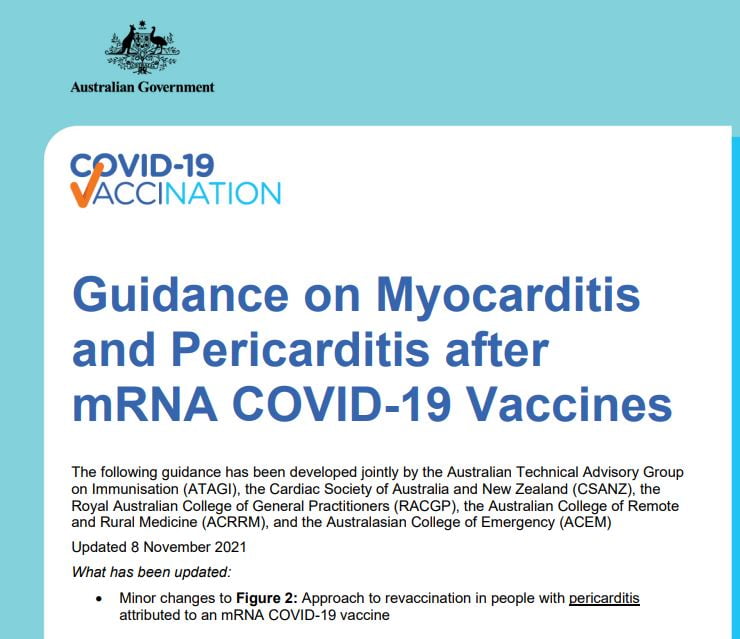The following is a news analysis
Sharyl Attkisson – According to CDC and other public health agencies around the globe, Covid-19 vaccines have been associated with heart inflammation in young people.
Listening to CDC advisers, one can see that when they say they are “monitoring” of cases and reports, it seems to involve trying to rule out any connection in order to get the illness numbers to their bare minimum.
Unlike with reports of Covid-19, whereby illnesses and deaths are often presumed to be related to the virus even when other factors are present; officials take the opposite position when it comes to the vaccine: that the illnesses are not related to the vaccine if they can possibly be attributed to anything else, or if there isn’t confirmatory data such as an autopsy available.
Obviously, the safer course of action from a public health standpoint would be to rule those cases in, rather than out, when full information is missing, or even if there are other factors since it doesn’t mean the vaccine didn’t play a role.
- Covid-19 Natural Immunity: The Definitive Summary
- Covid-19 Vaccine: 80 of the Most Common Adverse Events
- Covid-19 Vaccine Concerns Summary
- Covid-19 Vaccine Analysis: Common Adverse Events
- Covid-19 Origins: Separating Rumor from Fact (WATCH)
- Report a Possible Vaccine Adverse Event
But this is not what they do.
Below is a transcript of a recent presentation by Matthew Oster, MD, MPH, CDC COVID-19 Response, Vaccine Task Force, Pediatric Cardiologist, Children’s Healthcare of Atlanta on heart inflammation or myocarditis cases reported to the Vaccine Adverse Event Reporting System (VAERS).
Dr. Oster is able to effectively erase or explain away all of the VAERS reports related to myocarditis in young people after Covid-19 vaccine.
Scientists say reports to VAERS are only representative of patterns and are typically far fewer in number than what actually exists in the general population because most cases go unreported.
Listen to the audio below, followed by a transcript.
TRANSCRIPT: I did want to take a moment to address the question of deaths reported to VAERS with concern for myocarditis. This is reports of deaths in persons age less than 30 years among about 800…sorry 86 million dose for about 47 million individuals.
When CDC receives reports of death primarily through VAERS or through other means, a very extensive process is undertaken. This includes reading in reports that are sent to us, reaching out to a reporter, to get more information, trying to obtain extensive medical records and autopsy reports if they’re available, having discussions with the state health department as well as with the medical examiner, then whenever possible, offering to review pathology samples at CDC to look for ah to answer any questions that may be pertaining to the case in terms of diagnosis or potential causes.
So we are aware of nine cases where there was concern for myocarditis raised (inaudible). There was one case where fully va.. information was not available. This is the case that has been published in the literature. The 27 year old trisomy-21..um..this is available online. Ah..this individual did not have an MRI done, so we did not see if this was a confirmed myocarditis case. It was reported at fulminant myocarditis and an autopsy was not available for full investigation to look for other potential causes and was not able to be undertaken.
But eight had information available. Of these, two have an investigation ongoing, six have their evaluation that has been complete. Uh and these six have fallen into two categories. Three were found to have myocarditis. Three were found not to have myocarditis on review of uh pathology samples and these are thought to be other ah causes, cardiac causes of sudden death which were not due to myocarditis there was no evidence of that um certainly there’s a background rate of that as well.
For those cases with myocarditis, ah further investigation was completed looking for other potential infectious causes um as I’ll talk in a couple of slides, ah.. with classic myocarditis, there are a number of different infectious causes. There are bacterial and viral ah..as well as some other causes that can lead to myocarditis and in these three cases of myocarditis, a potential infectious cause was identified in each of those. And that leaves us with no ah cases thus far that have undergone full evaluation in which no other potential cause was identified.
Here’s CDC’s information on heart inflammation and Covid-19 vaccine. CDC says even though the inflammation is reported more often in young people who have been vaccinated (more often than the “background rate,” there is still a benefit for young people getting vaccinated).
Read the full presentation here:
https://www.cdc.gov/vaccines/acip/meetings/downloads/slides-2021-11-2-3/04-COVID-Oster-508.pdf
Read CDC’s information on heart inflammation after Covid-19 vaccine here:
https://www.cdc.gov/coronavirus/2019-ncov/vaccines/safety/myocarditis.html
more on relevant topic:


